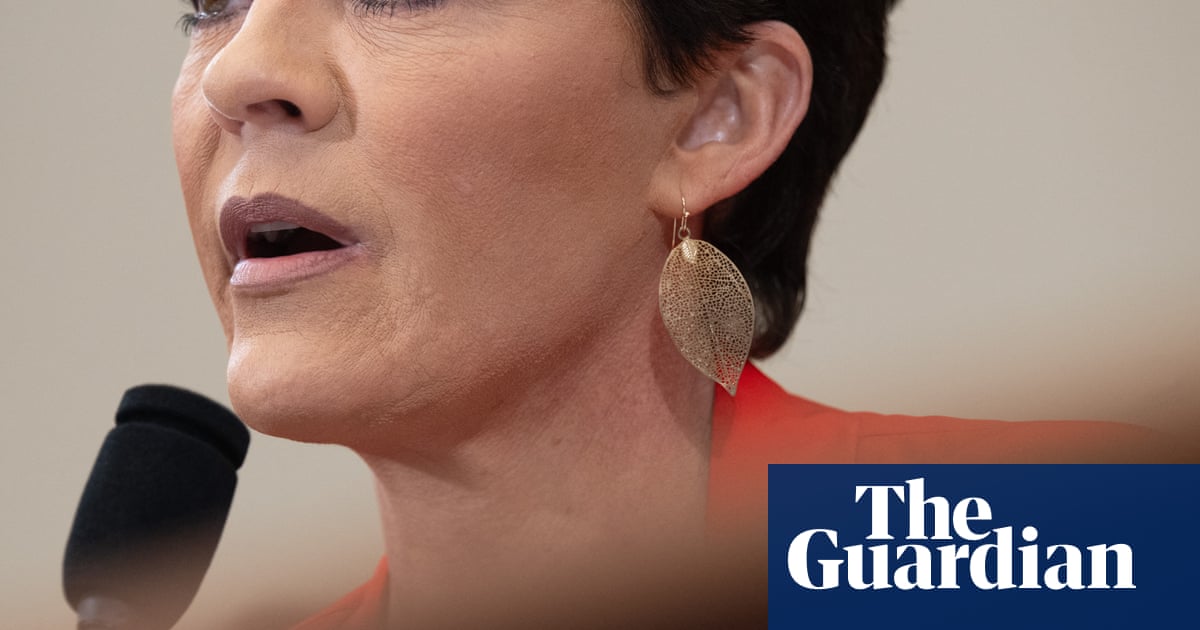Trump's Unseen Influence: Voice of America as a Presidential Megaphone Amidst Iranian Tensions

"Trump's Unseen Influence: Voice of America as a Presidential Megaphone Amidst Iranian Tensions"
In a striking revelation that underscores the evolving role of media in geopolitical narratives, Voice of America (VOA), a historically independent news service, found itself at the heart of a political maelstrom. During a recent military operation, President Donald Trump leveraged VOA to broadcast a message directly to the Iranian populace in Farsi, a move that has sparked controversy and raised questions about the integrity and independence of the service.
Kari Lake, a prominent figure in Trump's orbit and his chosen overseer for the US Agency for Global Media, disclosed this development to the House Foreign Affairs Committee. On a tense Saturday, as military strikes unfolded, VOA crews were reportedly mobilized to deliver Trump's message to Iran. Lake, a former television anchor with a storied career and a political aspirant endorsed by Trump for Arizona's governorship and later its Senate seat, expressed pride in this initiative. "I'm very proud to say that when President Trump, when the bombings happened over the weekend, on Saturday, when President Trump started to speak, we had a crew in on Saturday delivering President Trump's message to the people of Iran in Farsi," she declared.
This testimony adds a new dimension to VOA's mission, traditionally seen as a purveyor of US policy and news to a global audience. Lake's comments suggest a shift towards a more direct, personal form of communication from the President, diverging from VOA's longstanding role of providing a broader context of US policies. Her testimony coincided with a significant reduction in VOA's workforce, authorized by the White House just days earlier. The layoffs, which saw 639 employees terminated, are part of a broader strategy that has seen the agency's staff slashed by 1,400 since March, leaving a skeletal crew of 250.
Founded in 1942 as a counter to Nazi propaganda, VOA has been a cornerstone of US efforts to project American ideals during the Cold War, reaching an audience of 360 million weekly across multiple languages. However, Lake argues that the agency has outlived its usefulness, claiming it mismanages resources and disrespects taxpayers. "They shouldn't believe it. And I think this is why President Trump wants to eliminate the agency. The agency itself is not needed," Lake asserted, casting doubt on VOA's credibility.
Lake's critique extended to security concerns, alleging that VOA's lax screening processes had let "dangerous people" into the country. She cited intelligence warnings about the agency's "freelancing on your security screenings," though these claims remain unsubstantiated.
In a nostalgic nod to the past, Lake suggested returning VOA's functions to the State Department, reminiscent of its early years in the 1940s and 1950s, which she described as its "glory days." During this era, she contends, there were "guardrails on what the story of America was being told" and it wasn't "anti-American."
The dismantling of VOA began in earnest in March 2025, when President Trump signed an executive order targeting what he deemed bloated federal bureaucracies. The White House's rhetoric has been scathing, labeling VOA as "propaganda," "leftist," and "the Voice of Radical America." This narrative has been challenged by VOA journalists, who are fighting the cuts in court, arguing that they threaten the agency's 83-year legacy of independent journalism that champions democracy and freedom worldwide.
As the debate over VOA's future intensifies, it highlights the broader tensions between media independence and political influence, raising critical questions about the role of state-sponsored media in a democratic society.
---
🔮 Fortellr Predicts
Confidence: 80%
The utilization of Voice of America (VOA) as a potential tool for presidential messaging, as indicated by Kari Lake's Congressional testimony, is likely to result in a series of significant, concrete outcomes in the near and mid-term future. Firstly, the immediate consolidation of control over VOA will likely lead to further policy shifts that align closely with President Trump's broader geopolitical strategy, particularly concerning Iran. Given Trump's historical focus on direct communication channels, the re-purposing of VOA could augment U.S. soft power efforts, albeit at a potential cost to journalistic integrity and international credibility. This shift is expected to cause friction with existing international media norms and could lead to diplomatic tensions, particularly with European allies who value media independence as a pillar of democratic governance. In the U.S., domestic legislative pushback is anticipated as Congress may scrutinize these actions heavily, potentially leading to hearings and possible intervention to restore VOA's independence. Legal challenges, as suggested by current journalist lawsuits, may temporarily hinder the administration's efforts, but the trend aligns with a broader administrative restructuring agenda focused on direct control over state communications. Internationally, Iran may perceive this as an aggressive step, adding complexity to existing U.S.-Iran relations. The implicit messaging could provoke further diplomatic isolation or counter-narratives from Iran, as well as allies sympathetic to its stance. The strategic redirection of media resources also reflects a trend seen historically during heightened geopolitical tensions, suggesting a possible pattern of tighter media control during crisis periods.